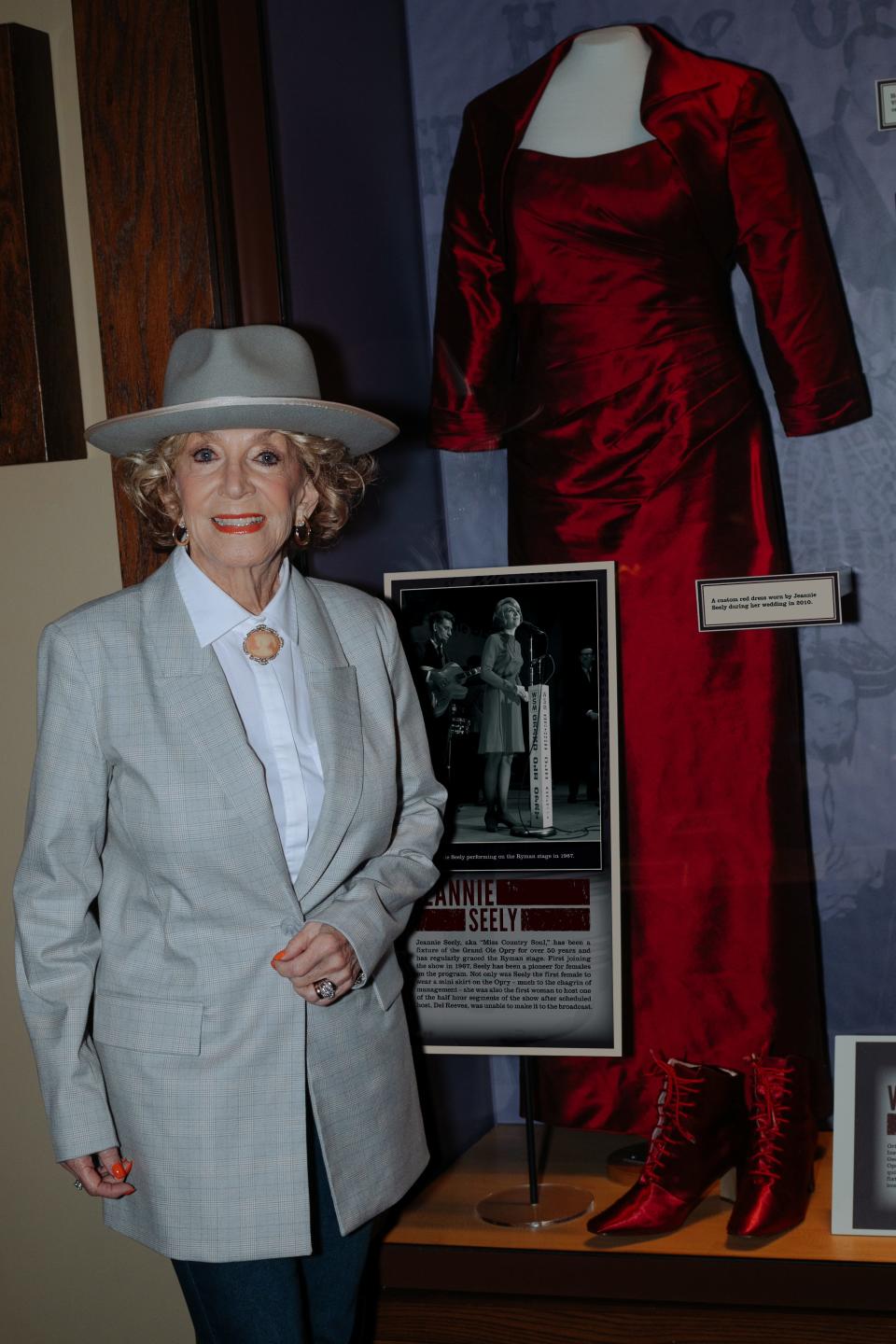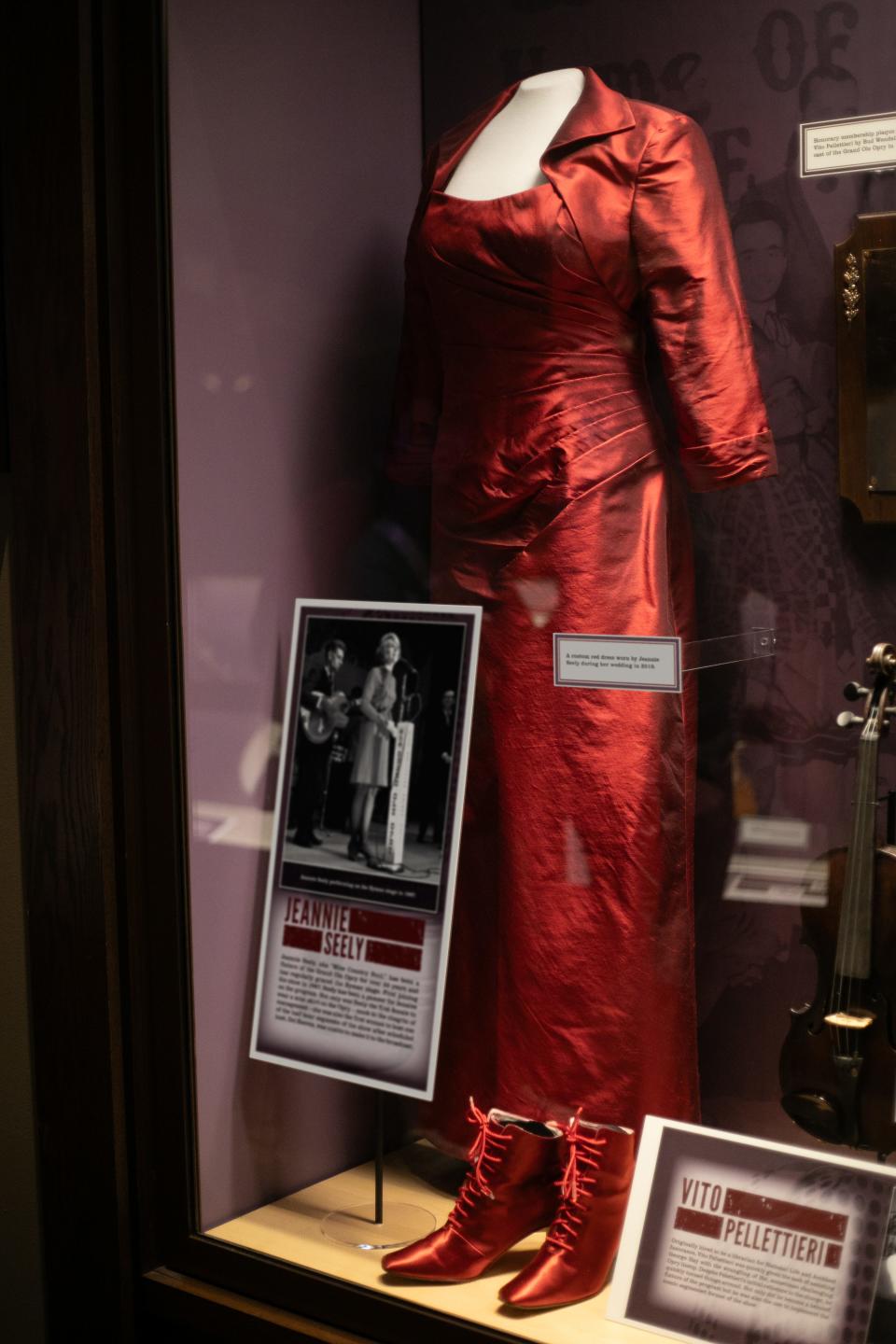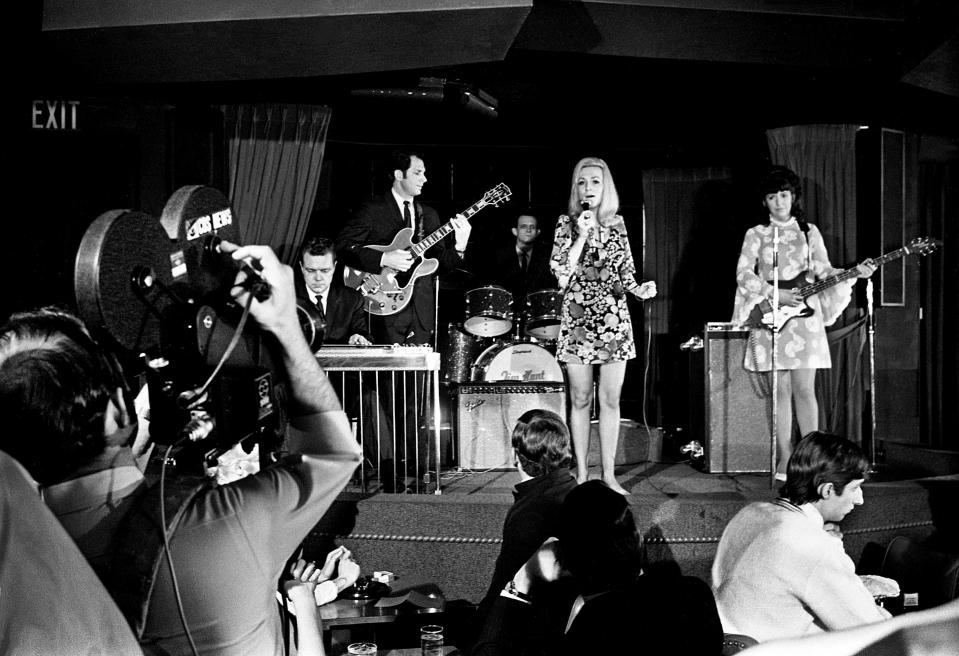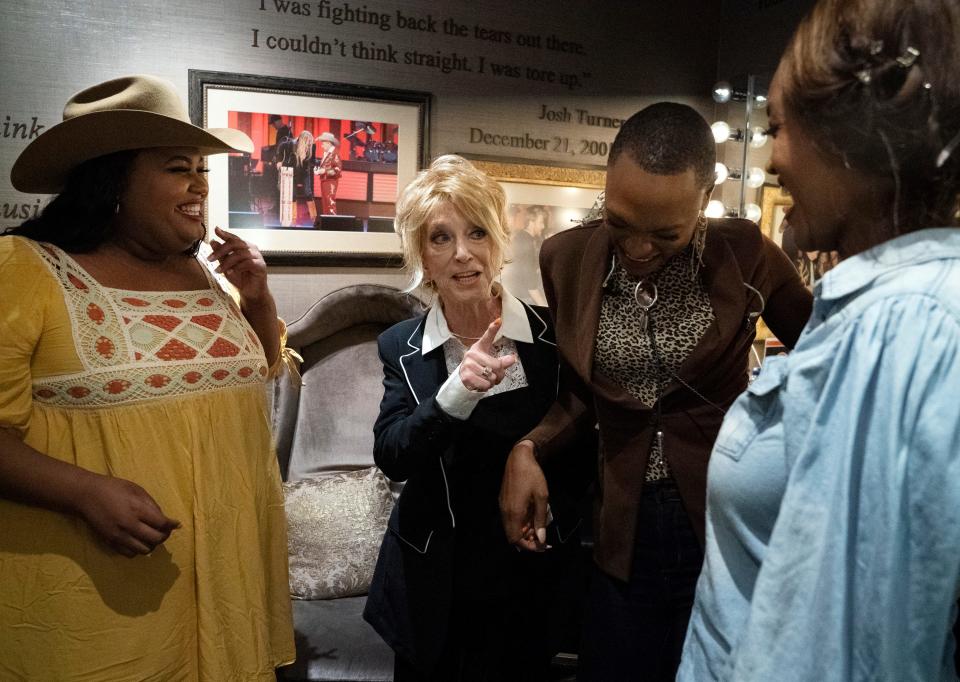Jeannie Seely reflects on the Grand Ole Opry and women in country music
- Oops!Something went wrong.Please try again later.
Grammy-winning country star Jeannie Seely's stylish fashion sense and upbeat demeanor are an effective shield for a bittersweet notion the 83-year-old frequently mentions.
Because so many of them have passed away in the past decade, the shine associated with the "golden era" of her fellow 1960s-era country stars and other Grand Ole Opry members with over five decades of membership has swiftly grown dim.
"We're not guaranteed to be here forever and country music is definitely as or more popular than it's ever been," says Seely, the Grand Ole Opry's longest-standing female member. "So being able to be visible, vocal and pass along that it's not all just fun, neon lights and pedal taverns is important. Before the era of people like myself and 'Whisperin'' Bill Anderson fades away, we have to celebrate the success of our era."

The 55-year Grand Ole Opry member, who has performed on the program over 5,000 times, joins Anderson and Connie Smith as Opry-member acts from the 1960s who are still regularly featured at 2804 Opryland Drive.
Seely is speaking with The Tennessean as artifacts from herself, Chet Atkins, Skeeter Davis, Marty Robbins, Kitty Wells and Porter Wagoner are being unveiled as new additions at the Ryman Auditorium. The in-venue exhibition highlights Opry-related memorabilia associated with the era from 1943-1973, when the program was recorded in country music's legendary "Mother Church."
Building respect for women in country music
Currently, country music has as many potential female breakout stars in town as it had during the 1970s and 1990s combined.
CMT's Next Women of Country program has spotlighted over 100 women in the past decade. Roughly two dozen each of No. 1 Billboard singles on country radio, Academy of Country Music Awards and Country Music Association Awards, plus Opry memberships for Lauren Alaina and Carly Pearce, are among the program's successes.

For young women especially, understanding the more profound value attached to the memorabilia matters to Seely because, as the Titusville, Pennsylvania-native notes, "if we, as women, didn't have success while also standing up for ourselves, the ability for space for ourselves to grow in the genre wouldn't exist."
She recalls conversations with WSM radio announcer Teddy Bart in which she demanded that female country performers no longer just be mindlessly grouped and referred to as "cute little girls in pretty little dresses."
"Then they would say to 'put your hands together and make her feel welcomed' — the connotation being, of course, that she wasn't welcome on that stage already," Seely adds.
When she was having this conversation, she was already the 1970 Best Female Country Vocal Performance Grammy winner for "Don't Touch Me," her now signature song. It was a fact that was also omitted from her live crowd introduction at the time.
"All I wanted was to be presented in the most professional manner possible to create the best connection with the audience before I entertained them," Seely says.
"A man's opinion about my dress has no impact on my value as a performer."

Mastering country music's entertainment value
"I went from being called a 'women's libber' to being respected as an entertainer," says Seely, hinting at a joke but making a far more serious statement.
Earning her stripes in country's notorious yet renowned male-dominated industry involved gaining an understanding of the art of being not just a torch-song singer nicknamed "Miss Country Soul" but also a more refined all-around entertainer.
"Humor. It starts with humor and songs," says Seely.

"Though the types of people who buy a ticket to the Opry — or any country music venue — will change, they all love a good laugh and great songs. That's not to say I'm the greatest singer ever, because I'm not. But from everyone from Ernest Tubb and more, I have learned the art of how to entertain a crowd."
She jokes that seeing commercially successful acts like John Denver and Olivia Newton-John being reviled for bringing their polished folk and pop sensibilities into country music only reinforced her belief that the genre's then "American Bandstand" and Top 40-radio-appealing style was due to pop culture naturally gravitating to progressive takes on the genre's inherently high entertainment value.
"Merging generational ideas and styles with country's entertaining traditions allows country music to remain loved and revered," she says.
Marketing to and with women in country music
Her success as a duo with Jack Greene saw her nominated for multiple CMA and Grammy awards in the early 1970s. Moreover, the duo's cosmopolitan, urban-trending presentation meant they frequently were asked to represent the genre in mainstream advertising and marketing circles.
Seely considers "playing a role in maintaining the idea that country music can sell products" as a part of her still-relevant career.
Expanding that notion has grown from '60s-era Opry members like herself, Loretta Lynn and Dolly Parton, through '80s-era stars like Barbara Mandrell, through names including Reba McEntire, Trisha Yearwood and Carrie Underwood.
"Women work hard, save their money and represent a percentage of the overall (fanbase of any product being marketed) that demands to be heard and seen," she says. "Ignoring them wastes potential connections."
Women of the Opry: Sara Evans invited to become the latest Grand Ole Opry member at sold-out Ryman concert
Country Music Hall of Fame: Patty Loveless exhibition to open in August at Country Music Hall of Fame and Museum
Seely and the Opry's continuing work, her legacy
Seely cites 1984 Opry inductee Lorrie Morgan and 2000-inducted Pam Tillis — whose inductions are separated by more than two decades — as showcasing the length and scope of the legacy of visibility and self-respect afforded female entertainers at the Grand Ole Opry and country music in general.

"Seeing (artists like Morgan and Tillis) confidently walking out (at the Grand Ole Opry) and taking command of that microphone and stage made all of my years of hard work feel worthwhile."
When asked to summarize the most significant value of her work yesterday and today, Seely offers a statement that makes her matching red satin gown and heels on display at the Ryman feel logical:
"I helped 'dress up' country music so that it could evolve from being looked down upon as rural, hillbilly entertainment — and there's nothing wrong with that — to achieving crossover acceptance."
If looking to see Seely in person, she will be appearing at the Country Music Hall of Fame and Museum on Sept. 16 from 2:30-4 p.m. CT alongside E. W. “Bud” Wendell and Mark Wills for a conversation about the Grand Ole Opry and longest-standing member "Whisperin'" Bill Anderson’s six-decade association with the show.
For more information, visit https://www.countrymusichalloffame.org/calendar/conversation-opry-memories.
This article originally appeared on Nashville Tennessean: Jeannie Seely on earning respect for women at Grand Ole Opry

